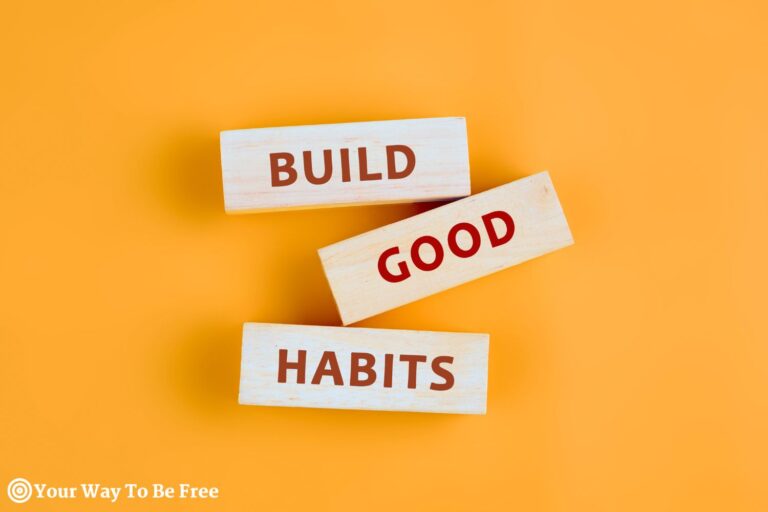Feeling like your thoughts are always one step ahead of you? Maybe you’re trying to finish a report, but your mind keeps wandering back to that show you watched last night. Or perhaps you’re chatting with a friend, but mentally you’re making a grocery list.
We’ve all been there. No matter how hard we try, staying focused and concentrated can be tough.
It’s as if our minds are like a crowded room, filled with chatter and noise, making it hard to hear the important things. This mental clutter not only slows us down but leaves us feeling stressed and overwhelmed.
But what if you could quiet the noise, clear the room, and give your full attention to what matters? Imagine how much more you could accomplish and how much better you’d feel.
The good news is that improving your concentration isn’t as hard as it seems. With a few simple changes and practice, anyone can do it.
In this article, we’ll explore why focusing is so challenging these days and share ten simple ways to boost your concentration. From practical daily habits to mindful techniques, you can find simple tips to help you cut through the distractions and find your focus. So, if you’re ready to reclaim your attention and make the most of each moment, let’s get started.
Related: Declutter Your Mind: 5 Simple Strategies for Mental Clarity
Why We Struggle with Concentration
Concentration can be tricky, and there’s a good reason for it. Our modern lives are filled with constant stimuli vying for our attention, making it harder than ever to focus on just one thing.
One big reason we struggle is information overload. Think about it: from the moment we wake up, we’re bombarded with emails, text messages, social media updates, and news headlines. It’s like trying to read every book in a library all at once. This information overload leaves us mentally exhausted because our brains aren’t designed to handle so much at once.
Another factor is the habit of multitasking. We often pride ourselves on juggling multiple tasks at once, replying to emails during meetings, or scrolling through our phones while watching TV. But multitasking is a bit of a myth. Instead of doing several things well, we end up doing multiple things poorly because our attention is split.
Stress and lack of rest also play a huge role. When we’re stressed or tired, our minds have a harder time filtering out distractions and staying on track. It’s like trying to run a marathon on no sleep, you won’t get very far before feeling drained.
Even our environment can trip us up. Noisy settings, cluttered workspaces, or frequent interruptions make it tough to maintain focus. It’s hard to concentrate when the phone keeps ringing or when notifications keep popping up.
Understanding these challenges is the first step toward overcoming them. By recognizing what’s pulling our attention in different directions, we can start making changes to improve our focus and get back in control of our minds.
Related: Digital Detox: How Unplugging Can Lead To A More Present And Free Life
The Ripple Effect of Concentration: From Struggle to Success
When we struggle to focus, it doesn’t just slow us down at work, it touches every part of our lives. But the flip side is just as powerful: sharpening our concentration can bring remarkable benefits.
From Decreased Productivity to Enhanced Efficiency
Without the ability to concentrate, tasks take longer, and the quality often dips. We waste time and energy trying to get back on track, which can be incredibly frustrating. But when you’re fully focused, you breeze through tasks more quickly and efficiently. Checking off your to-do list becomes satisfying, and you build momentum that carries you through the day.
From Rising Stress to Reduced Tension
Constantly battling distractions leads to feelings of overwhelm and stress. This mental clutter wears you out and can lead to burnout. On the other hand, focusing on one thing at a time calms the mind. You create a peaceful environment where you can thrive by eliminating multitasking and reducing distractions.
From Poor Decisions to Better Problem-Solving
Lack of focus means missing important details, which can result in poor decisions, especially tough when the stakes are high. Improved concentration allows you to dive deeper into issues, consider different angles, and come up with effective solutions. Your decisions become clearer and more confident.
From Strained Relationships to Stronger Connections
When our minds are elsewhere, we’re not truly present with the people who matter. Loved ones may feel neglected, leading to misunderstandings or tension. But being fully engaged when you’re with others strengthens those bonds. People notice when you’re genuinely listening, and it makes your relationships richer and more fulfilling.
From Dwindling Creativity to Innovative Thinking
Concentration is key to creativity. When we’re unfocused, it’s tough to generate new ideas or think outside the box. But with a clear mind, your imagination can flourish. You’re better able to connect the dots, see new possibilities, and bring fresh ideas to the table.
10 Simple Ways to Boost Your Concentration
Now that we’ve explored why concentrating can be so challenging and the impact it has on our lives, let’s dive into practical solutions. Here are ten simple and effective ways to sharpen your focus and reclaim your attention.
1. Manage Stress Effectively
Stress can be a major roadblock to concentration. When your mind is cluttered with worries, it’s hard to focus on anything else. Incorporating relaxation techniques into your daily routine can make a big difference. Activities like deep breathing, meditation, or yoga can help calm your mind and reduce stress levels. Even taking a few minutes each day to unwind can clear your mental fog and improve your ability to concentrate.
2. Find Your Most Productive Time of Day
We all have certain times when we’re naturally more alert and focused. Figuring out when you function best can help you make the most of your peak hours. Pay attention to your energy levels throughout the day. Maybe you’re a morning person who feels sharp after breakfast, or perhaps you hit your stride in the afternoon or evening. By scheduling your most important tasks during these times, you enhance your ability to concentrate and work more efficiently.
3. Reduce Social Media Distractions
Social media is designed to grab your attention and keep it. While it can be entertaining, it often pulls us away from what we’re supposed to be doing. Limiting your social media use during work or study periods can free up mental bandwidth for focusing on your tasks. You might set specific times to check your accounts or use apps that block social media during certain hours. Imagine how much more you could accomplish without the temptation to check notifications every few minutes.
4. Break Down Daunting Tasks
Big projects can feel overwhelming, making it hard to even start. Breaking them into smaller, more manageable steps can make them less intimidating. By dividing a large task into bite-sized pieces and setting mini-deadlines for each step, you can maintain motivation and a sense of progress. For example, if you’re writing a report, start by outlining the sections, then focus on writing one section at a time. Completing each part gives you a sense of accomplishment and keeps you moving forward.
5. Stay Hydrated and Eat Healthy
Your brain needs proper fuel to function at its best. Staying hydrated and choosing nutritious foods can have a significant impact on your concentration. Drink plenty of water throughout the day, and opt for healthy snacks like nuts, fruits, or yogurt that provide sustained energy. Ever notice how sluggish you feel after a heavy, greasy meal? By choosing lighter, nutrient-rich foods, you can keep your energy levels steady and your mind sharp.
6. Create a Distraction-Free Environment
Our surroundings play a big role in our ability to focus. A cluttered or noisy environment can pull your attention away from what you’re doing. Setting up a dedicated workspace that’s clean and organized can help minimize distractions. You might close doors, use noise-canceling headphones, or play soft background music if it helps you concentrate. Think about how much easier it is to read a book in a quiet room versus a bustling café. By controlling your environment, you set yourself up for better focus.
7. Take Regular Breaks
It might seem counterintuitive, but taking breaks can actually improve concentration. Our brains aren’t designed to focus intensely for long periods without rest. Incorporating short breaks into your work routine can prevent mental fatigue and keep you fresh. Techniques like the Pomodoro Technique, where you work for 25 minutes, and then take a 5-minute break, can be particularly effective. During your break, step away from your workspace, stretch, or take a few deep breaths.
8. Get Enough Sleep
Sleep is essential for cognitive function. When you’re well-rested, your mind is clearer and focusing becomes much easier. Aim for 7-9 hours of sleep each night, and establish a regular sleep schedule by going to bed and waking up at the same times each day. Remember how foggy your mind feels after a late night? Consistent, quality sleep can make a significant difference in your ability to concentrate.
Related: 6 Proven Sleep Hacks: Wake Up Refreshed & Energized
9. Exercise Regularly
Physical activity isn’t just good for your body, it’s great for your mind too. Exercise increases blood flow to the brain, which can boost cognitive function. Incorporate some form of exercise into your routine, whether it’s a brisk walk, cycling, dancing, or yoga. Even a short walk during your lunch break can refresh your mind and improve your focus for the afternoon.
Related: Top 5 Exercises for Busy Days: Staying Fit in Less Time
10. Limit Multitasking
While it might seem like multitasking allows you to get more done, it actually splits your attention and reduces overall efficiency. Focusing on one task at a time can improve the quality of your work and reduce stress. Prioritize your tasks and work through them sequentially. You’ll likely find that you complete tasks faster and with better results when you give them your full attention, rather than juggling several things at once.
Conclusion: Take the First Step Today
Improving your concentration is a journey that requires consistent effort and mindful changes to your daily routine.
Maintaining focus helps you achieve your goals more efficiently and enhances your overall well-being. It’s about finding a balance that works for you and making small adjustments that lead to big improvements.
Start by integrating one or two of these tips into your routine and gradually incorporate more as you see fit. Over time, you’ll notice a marked improvement in your concentration, productivity, and overall mental clarity.
By taking control of your focus, you’re investing in yourself and your future.







